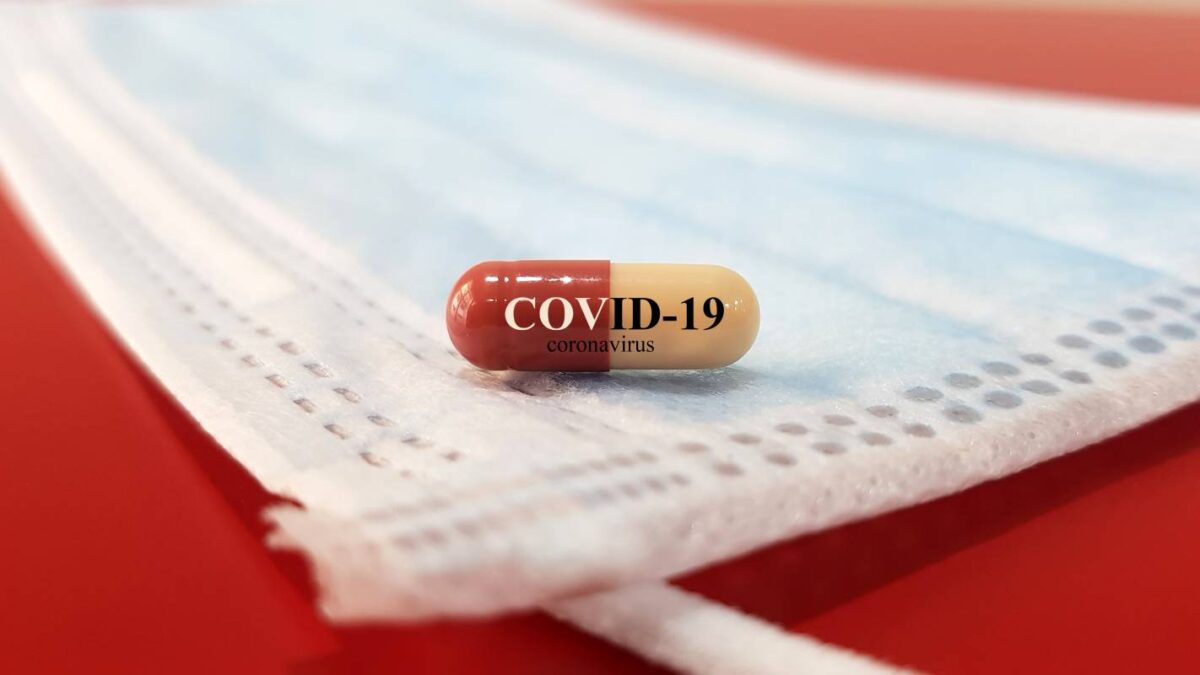Paxlovid: A Potential Antiviral Covid Pill

Pfizer, the company that collaborated to create the first mRNA coronavirus vaccine to receive emergency use authorization, is now seeking emergency use authorization from the FDA for its Covid-19 antiviral pill. On November 5, Pfizer announced in a press release that its new oral antiviral treatment, Paxlovid, significantly reduced the risk of hospitalization and death from COVID-19 (Pfizer, 2021). Interim analysis of the data from Pfizer’s Phase 2-3 clinical trials found that “among participants who received treatments within three days of Covid-19 symptoms starting, the risk of COVID-related hospital admission or death from any cause was 89% lower in the Paxlovid group than the placebo group” (Mahase, 2021).
The Paxlovid trial included 1,219 participants with a coronavirus infection at higher risk of developing severe COVID-19 (Citroner, 2021). In the study, participants were randomized 1:1, with half receiving a placebo pill and the other half receiving Paxlovid (Mahase, 2021). Of the participants who were treated within three days of symptom onset, 0.8% of patients who received Paxlovid were hospitalized up to day 28 after randomization, and no deaths occurred. In the comparison group of participants who were given a placebo, 7% of patients were admitted to the hospital, with seven deaths (Pfizer, 2021). Similar reductions were seen in participants treated within five days of symptom onset. Overall, throughday 28, “no deaths were reported among patients who received Paxlovid, while 10 people (1.6%) in the placebo group died” (Mahase, 2021). “[This news] is a real game-changer in the global efforts to halt the devastation of this pandemic,” said Albert Bourla, chairman and CEO of Pfizer, in a statement (Pfizer, 2021). “These data suggest that our oral antiviral candidate, if approved or authorized by regulatory authorities, has the potential to save patients’ lives, reduce the severity of COVID-19 infections, and eliminate up to nine out of ten hospitalizations,” he continued.
So how does Paxlovid work? Antiviral drugs like Paxlovid inhibit a virus’ ability to infect or replicate inside our cells. The coronavirus “wreaks havoc on the body” by inserting itself into cells, and then hijacking cell machinery to make copies of itself. Those copies then burst out of the cells and “invade other cells, spreading through the body” (Hickok, 2021). Paxlovid consists of two components: “an experimental molecule called PF-07321332 and an existing drug called ritonavir. Both are protease inhibitors, which means they block an enzyme (called a protease) that cuts apart long strands of nonfunctional viral proteins into smaller, functional proteins” (Hickok, 2021). In essence, Paxlovid aims to stop the coronavirus from replicating. “These drugs can be administered at any stage of the infection based on their mode of action,” said Fenyong Liu, a virologist at the University of California, Berkeley. However, “because more severe complications and damage due to infection are always associated with later stages,” they will be more effective if they’re given in the early stages of the infection (Hickok, 2021). In the Paxlovid clinical trial, Pfizer started the treatment within five days of symptom onset.
Antiviral COVID drugs “arrived with minimal fanfare but represent the biggest advance yet in treating patients already infected with COVID-19,” says Monica Gandhi, professor of medicine and associate division chief of HIV, Infectious Diseases, and Global Medicine at UCSF / San Francisco General Hospital (Gandhi, 2021). Ahead of its approval, the UK purchased 250,00 courses of thePaxlovid; according to news reports, the Biden administration is “set to buy 10 million courses” of the pills (Pager et al., 2021). Millions of Americans remain unvaccinated, while millions more around the globe still don’t have access to the vaccine; as such, the need and public demand for effective medication to reduce the severity of symptoms for both unvaccinated and vaccinated patients alike remain evident.
References
Citroner, G. (2021, November 8). Pfizer antiviral drug may be 90% effective against severe Covid-19: what we need to know. Healthline. https://www.healthline.com/health-news/pfizer-antiviral-drug-may-be-90-effective-against-severe-covid-19-what-to-know.
Gandhi, M. (2021, November 29). The new COVID drugs are a bigger deal than people realize. The Atlantic. https://www.theatlantic.com/ideas/archive/2021/11/covid-drugs-molnupiravir-paxlovid-treatment-antiviral/620819/.
Hickok, K. (2021, November 12). How Covid antiviral pills work and what that could mean for the pandemic. NBC News. https://www.nbcnews.com/health/health-news/covid-antiviral-drugs-merck-pfizer-pills-work-rcna5317.
Mahase E. (2021, November 8). Covid-19: Pfizer’s Paxlovid is 89% effective in patients at risk of serious illness, company reports. BMJ doi:10.1136/bmj.n2713
Pager et al. (2021, November 16). Biden administration to buy Pfizer antiviral pills for 10 million people, hoping to transform pandemic. The Washington Post. https://www.washingtonpost.com/health/2021/11/16/administration-purchases-pfizer-anti-covid-pill/.
Pfizer, Inc. (2021, November 5). Pfizer’s Novel COVID-19 Oral Antiviral Treatment Candidate Reduced Risk of Hospitalization or Death by 89% in Interim Analysis of Phase 2/3 EPIC-HR Study. Business Wire. https://www.businesswire.com/news/home/20211105005260/en/
